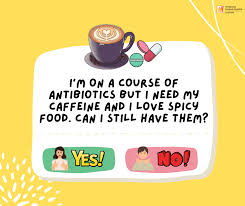
Breaking News
 Fearing US Reprisals, Mexico Halts Oil Shipment To Cuba
Fearing US Reprisals, Mexico Halts Oil Shipment To Cuba
 Iran Executes Suspected Israeli Spy In High-Stakes Act Of Defiance
Iran Executes Suspected Israeli Spy In High-Stakes Act Of Defiance
 TikTok Users Report Trouble Posting About Epstein, ICE, Days After Company Finalizes Sale...
TikTok Users Report Trouble Posting About Epstein, ICE, Days After Company Finalizes Sale...
 Chaos Is Spreading Like Cancer. What Happens Next?
Chaos Is Spreading Like Cancer. What Happens Next?
Top Tech News
 Researchers who discovered the master switch that prevents the human immune system...
Researchers who discovered the master switch that prevents the human immune system...
 The day of the tactical laser weapon arrives
The day of the tactical laser weapon arrives
 'ELITE': The Palantir App ICE Uses to Find Neighborhoods to Raid
'ELITE': The Palantir App ICE Uses to Find Neighborhoods to Raid
 Solar Just Took a Huge Leap Forward!- CallSun 215 Anti Shade Panel
Solar Just Took a Huge Leap Forward!- CallSun 215 Anti Shade Panel
 XAI Grok 4.20 and OpenAI GPT 5.2 Are Solving Significant Previously Unsolved Math Proofs
XAI Grok 4.20 and OpenAI GPT 5.2 Are Solving Significant Previously Unsolved Math Proofs
 Watch: World's fastest drone hits 408 mph to reclaim speed record
Watch: World's fastest drone hits 408 mph to reclaim speed record
 Ukrainian robot soldier holds off Russian forces by itself in six-week battle
Ukrainian robot soldier holds off Russian forces by itself in six-week battle
 NASA announces strongest evidence yet for ancient life on Mars
NASA announces strongest evidence yet for ancient life on Mars
 Caltech has successfully demonstrated wireless energy transfer...
Caltech has successfully demonstrated wireless energy transfer...
 The TZLA Plasma Files: The Secret Health Sovereignty Tech That Uncle Trump And The CIA Tried To Bury
The TZLA Plasma Files: The Secret Health Sovereignty Tech That Uncle Trump And The CIA Tried To Bury
Caffeine and antibiotics: A surprising link that demands caution

Caffeine triggers changes in bacterial genes, decreasing production of the OmpF protein — a key entry point for antibiotics — making it harder for drugs to penetrate and kill bacteria.
Antibiotic resistance is a major global crisis, projected to cause 10 million annual deaths by 2050. While overuse of antibiotics is a known factor, everyday chemicals like caffeine may also contribute silently.
Experts caution that human implications are still unclear, and there's no evidence that drinking coffee directly impacts infection treatment. However, the lab findings highlight a concerning interaction needing further study.



